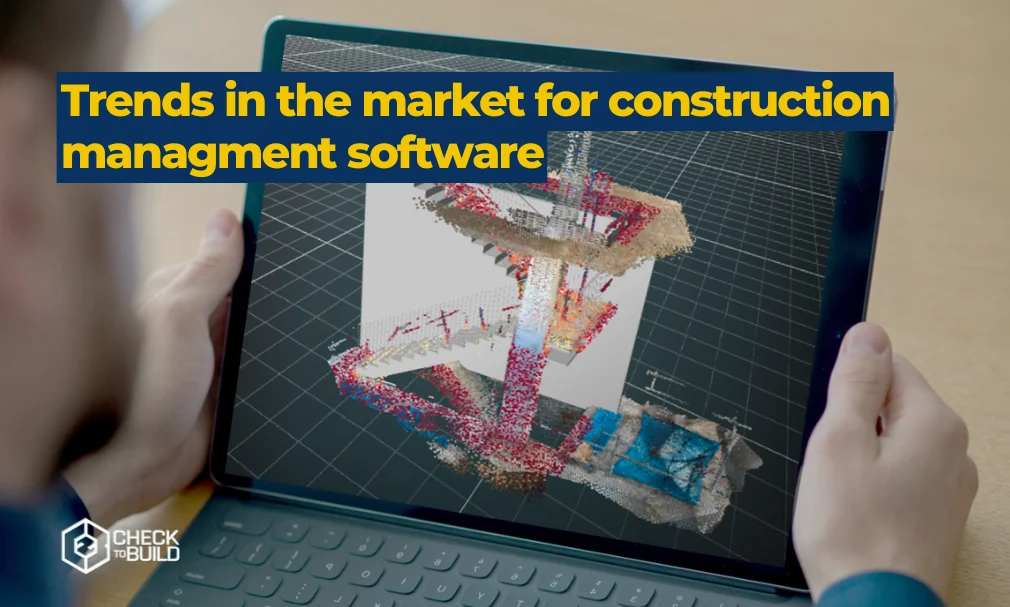In today’s fast-paced construction industry, staying ahead of the curve is paramount. With projects becoming increasingly complex and client demands ever-growing, construction firms are turning to technology to streamline their operations and boost efficiency. One such technology that has revolutionized the way construction projects are managed is Construction Management Software (CMS) has revolutionized the way construction projects are managed. It has emerged as a game-changer in the construction industry, offering a plethora of benefits to firms seeking to enhance project management, communication, and collaboration. Let’s dive deeper into the advantages of leveraging CMS in construction projects.
Benefits of Using Construction Management Software
Enhanced Project Efficiency
Efficiency is the cornerstone of successful construction projects, and CMS plays a pivotal role in optimizing project workflows. With real-time collaboration features, instant updates, and unified workspaces. CMS ensures that all stakeholders are on the same page, reducing delays and improving productivity. Predictive analysis capabilities further aid in identifying potential bottlenecks and addressing them proactively, keeping projects on track and within budget.
Cost Savings
Cost management is a major concern in the construction industry, and CMS helps mitigate financial risks by providing tools for accurate budgeting, expense tracking, and forecasting. By minimizing errors, optimizing resource allocation, and reducing wastage, CMS enables construction companies to achieve significant cost savings throughout the project lifecycle. Transparent financial tracking ensures that budgets are closely monitored. By allowing for timely adjustments and preventing costly overruns.
Real-time Access to Data
Access to accurate and up-to-date data is crucial for informed decision-making in construction projects. CMS provides real-time access to project-related information, enabling project managers and stakeholders to make timely decisions based on the latest data available. Enhanced collaboration, time-saving features, and risk mitigation tools further contribute to improved project outcomes and client satisfaction.
Improved Risk Management
Construction projects are inherently risky, with numerous potential challenges and uncertainties. CMS helps mitigate risks by providing predictive analysis, safety protocols, and document consistency features. By identifying ,potential risks early on and implementing measures to address them. Also, construction companies can minimize the impact of unforeseen events and ensure project success.
Transparent Communication
Clear and transparent communication is essential for the success of construction projects. CMS facilitates seamless communication among all project stakeholders. Unified platforms, real-time updates, and feedback loops ensure that everyone is aligned on project goals and expectations. Document sharing and task assignment features further streamline communication, fostering collaboration and accountability.
Types of Construction Management Software
Construction management software comes in various types, each tailored to meet the specific needs of construction firms. Some popular types include:
Project Planning and Scheduling Software: These tools help create detailed project plans, allocate resources efficiently, and set realistic timelines.
Cost Management Software: These tools track project expenses, monitor budget allocations, and generate accurate cost reports.
Document Management Software: These tools streamline document management by providing a secure repository for all project-related documents.
Real-Time Project Tracking Software: These tools offer real-time project tracking capabilities, allowing project managers to monitor progress and identify potential issues as they arise.
Trends in the Market for Construction Management Software
The market for construction management software is constantly evolving, with new trends shaping the industry landscape. Some key trends to watch out for include:
Cloud-Based Solutions: Cloud-based construction management software offers greater flexibility, scalability, and accessibility, allowing construction firms to manage projects from anywhere, anytime.
Mobile Applications: Mobile applications are becoming increasingly popular in the construction industry, enabling field workers to access project information, submit updates, and communicate with team members on the go.
Artificial Intelligence and Machine Learning: AI and machine learning technologies intigrated into construction management software to automate repetitive tasks, analyze data, and provide predictive insights, enhancing decision-making and efficiency.
Integration with Building Information Modeling (BIM): Integration with BIM software allows construction management software to visualize project designs in 3D, identify clashes, and optimize construction workflows, resulting in improved project coordination and quality.

